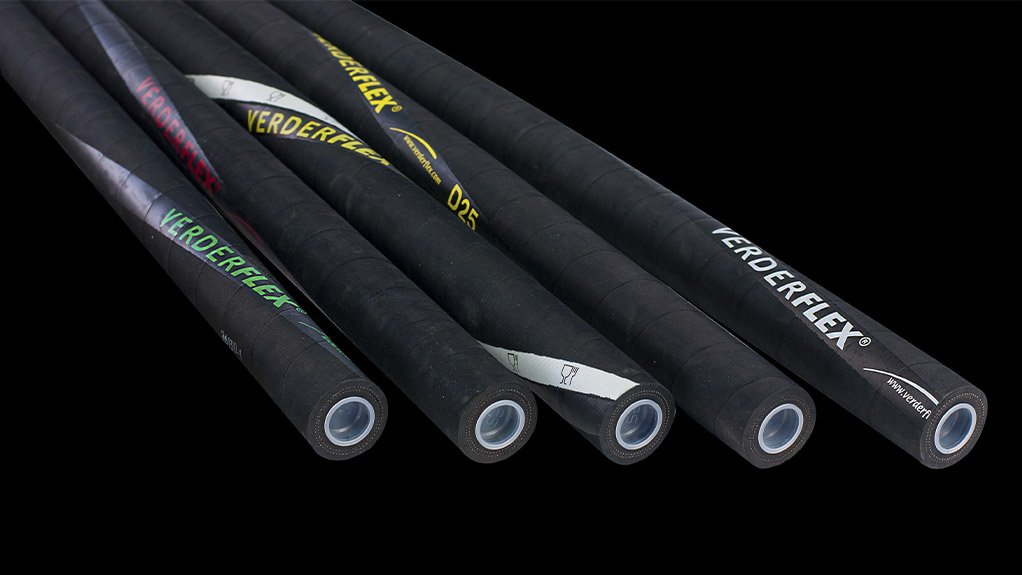Written by Verder Pumps South Africa MD Darryl Macdougall
In any industrial operation, achieving the delicate balance between cost efficiency and profitability is paramount. Nowhere is this more evident than in the mining industry, where the relentless drive for profitability, efficiency and maximum yield defines the landscape. In this competitive environment, companies may be tempted to resort to installing non-original equipment manufacturer (OEM) aftermarket spare parts, particularly hoses, in their equipment to lower purchase costs. However, the allure of upfront savings masks the substantial long-term costs and risks associated with this approach.
Equipment reliability is the linchpin of operational success in mining, making the implications of using non-OEM hoses profound. Peristaltic pumps, crucial for handling aggressive and abrasive slurries, heavily rely on the integrity of their hoses. Opting for non-OEM hoses may seem like a pragmatic cost-saving measure, but it frequently leads to a chain of adverse effects that compromise production efficiency, profitability and overall plant performance.
One of the most significant drawbacks of non-OEM hoses is compromised quality and performance. Non-OEM hoses often fail to meet the precise specifications required for peristaltic pumps, resulting in reduced pumping efficiency and premature failure due to inferior material quality. The consequences of such failures extend beyond mere inconvenience, impacting slurry density consistency and, consequently, the quality of the final product.
Moreover, the increased likelihood of unexpected hose failures leads to additional maintenance requirements and extended downtime. Every minute spent replacing a failed hose incurs escalating downtime costs, negating any initial savings achieved by installing non-OEM hose alternatives. This not only strains the maintenance team but also jeopardises their capacity to conduct preventive maintenance on critical equipment elsewhere in the plant, potentially leading to broader operational disruptions.
The safety and environmental risks associated with non-OEM hoses also cannot be understated. Hose ruptures pose environmental, health and safety risks, potentially exposing personnel to hazardous materials and posing regulatory compliance challenges. The resultant environmental damage and reputational harm can inflict lasting financial repercussions on mining operations. OEM hoses not only keep people and the environment safer, but help mining operations avoid costly cleanup efforts and keep their reputations intact.
From a financial standpoint, the initial cost savings of non-OEM hoses pale in comparison to the long-term expenses they entail. Higher replacement frequency, increased labour for emergency repairs, and potential product losses far outweigh any upfront savings. In contrast, OEM hoses offer a superior return on investment through their longer service life and dependable performance, mitigating the risks of unplanned downtime and associated costs.
Add to this the fact that the use of non-OEM hoses jeopardises warranties on peristaltic pumps, depriving operations of manufacturer support in the event of pump-related failures. This loss of support translates into a lack of expert guidance, hindering efforts to optimise pump performance and prolong equipment lifespan.
While the prospect of up-front cost savings with non-OEM hoses may seem compelling, the inherent risks and hidden costs they entail make them a gamble not worth taking. Achieving operational excellence in mining necessitates a steadfast commitment to quality and reliability - qualities that OEM hoses deliver consistently. Thus, investing in OEM parts is not merely a matter of quality but a strategic imperative for ensuring the sustainability and profitability of mining operations in the long run.
EMAIL THIS ARTICLE SAVE THIS ARTICLE
To subscribe email subscriptions@creamermedia.co.za or click here
To advertise email advertising@creamermedia.co.za or click here













